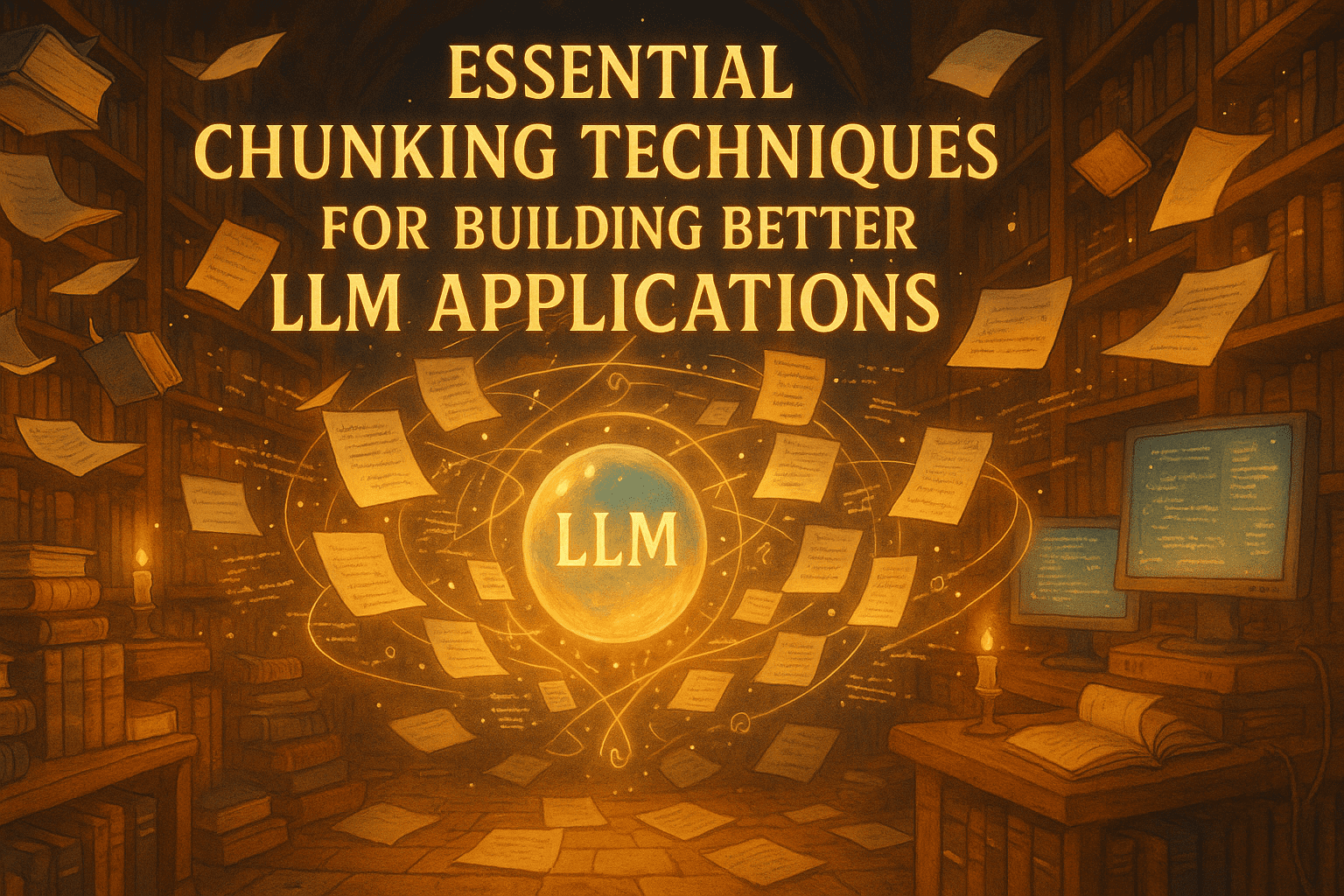Essential Chunking Techniques for Building Better LLM Applications
NeutralArtificial Intelligence

The article highlights the importance of chunking techniques in the development of large language model (LLM) applications, specifically addressing the challenge of transforming extensive documents, such as a 50-page report, into smaller, usable segments. This is particularly relevant for retrieval-augmented generation (RAG) applications, where the efficiency of information retrieval directly impacts the quality of generated responses. As LLMs become increasingly integral to various applications, mastering the art of document chunking is essential for developers aiming to optimize performance and ensure that these models can effectively process and generate relevant information.
— via World Pulse Now AI Editorial System
